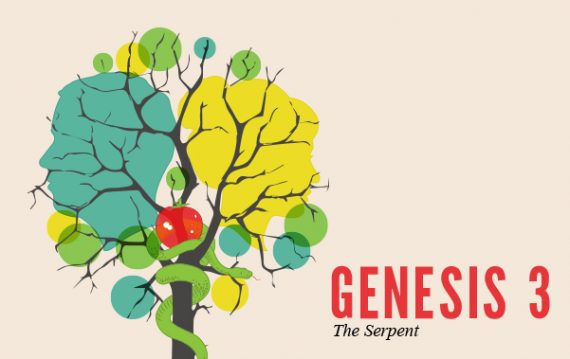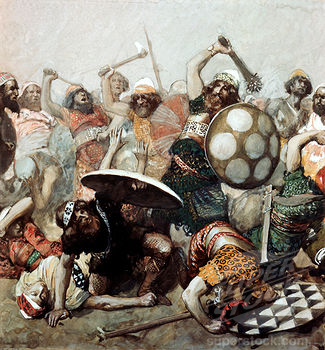
This episode of the One Verse Podcast provides a summary of what we have seen from Genesis 3. There is still some new stuff in this episode, so if you have listened to all the previous episodes on Genesis 3, you will still want to listen to this one.
But if you are just joining us on the One Verse Podcast and have missed most of the previous episodes, this one will get you up to speed. Of course, since what I share today might be a bit challenging, you might also want to go back and listen to some of the episodes from Genesis 3 to get a further explanation and understanding of what we discuss today.
In this Summary of Genesis 3 we look at:
- The basic question “What has gone wrong with the world?”
- The fact that Genesis 3 does not talk about sin
- What God’s response to Adam and Eve in Genesis 3 reveals what God thinks about our own disobedience
- Three truths about sin that most of us fail to understand
Resources:
- Take my online Bible and Theology Courses
- Become a Member of RedeemingGod.com
- Biddle, Missing the Mark
- Subscribe and Leave a Review on iTunes
Downloadable Podcast Resources
Those who are part of my online discipleship group may download the MP3 audio file for this podcast and view the podcast transcript below.
You must join a discipleship group or login to download the MP3 and view the transcript.
Thanks for visiting this page ... but this page is for Discipleship Group members.
If you are already part of a Faith, Hope, or Love Discipleship Group,
Login here.
If you are part of the free "Grace" Discipleship group, you will need to
Upgrade your Membership to one of the paid groups.
If you are not part of any group, you may learn about the various groups and their benefits here:
Join Us Today.

Do you like learning about the Bible online?
Do you like learning about Scripture and theology through my podcast? If so, then you will also love my online courses. They all have MP3 audio downloads, PDF transcripts, quizzes, and a comment section for questions and interaction with other students.
If you want to deepen your relationship with God and better understand Scripture, take one (or all) of these courses. They are great for personal study or for a small group Bible study.
You can see the list of available courses here, and if you join the Discipleship group, you can take all the courses at no additional cost. Go here to learn more and join now.


![[#51] Genesis 3 Summary – The Redemption of Sin](https://redeeminggod.com/wp-content/uploads/2016/09/Genesis-3-150x150.png)
![[#37] Genesis 3 Introduction](https://redeeminggod.com/wp-content/uploads/2016/05/Genesis3-150x150.jpg)


 This is a guest post from Wesley Rostoll. He lives in in South Africa with his wife and two kids.
This is a guest post from Wesley Rostoll. He lives in in South Africa with his wife and two kids.  The truth is this wasn’t a case of a petty or offended deity overreacting.
The truth is this wasn’t a case of a petty or offended deity overreacting. 
 If it is on the
If it is on the  God Takes on the Violence of All Humanity
God Takes on the Violence of All Humanity How can a God who says "Love your enemies" (Matthew 5:44) be the same God who instructs His people in the Old Testament to kill their enemies?
How can a God who says "Love your enemies" (Matthew 5:44) be the same God who instructs His people in the Old Testament to kill their enemies?
